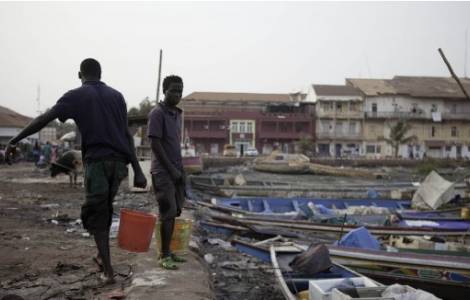
Bissau (Agenzia Fides) - "After the dissolution of parliament in May 2022, President Umaro Sissoco Embalò appointed ministers and in one way or another the situation continued", says Father Celso Corbioli, of the Missionaries Oblates of Mary Immaculate in Guinea Bissau since 2003, to Fides. In February a year ago, a strange coup attempt, although it did not last long and ended rather quickly and bloodlessly, brought the country back into a situation of instability. The missionary, who is spiritual Director of the major Seminary in Bissau, dwells on the phase of uncertainty and socio-economic difficulties being experienced by the small West African country between Senegal and Guinea Conakry.
"There is anticipation for the local elections to be held in June after the census is completed. We all hope they will be free and transparent".
Guinea Bissau has a fascinating history, also linked to the hero of its independence - and of Cape Verde - Amilcar Cabral and his original approach to the fight against colonialism that inspired political, economic and cultural liberation movements in Africa and other areas of the world. A fine intellectual, poet, and agronomist, Cabral founded the Partido Africano da Independência da Guiné e do Cabo Verde (PAIGC) in 1956, as well as devising a process of decolonization that aimed not only at the liberation and expulsion of the oppressor, but at a genuine transformation of society from cultural, economic and social points of view. His death at the hands of a murderer in early 1973 left the project unfinished and the country grappling with continuous coups and instability that led it to be one of the poorest on the Continent.
"The political situation" says the missionary "remains rather tense since the last presidential elections held at the end of 2019 (in the first round, candidate Domingos Pereira of the African Party for the Independence of Guinea and Cape Verde - Paigc - obtained 40 1% of the votes while Embaló – Madem – obtained 27.6%; but in the run-off the latter overturned the result gaining 53.5% ed). Pereira, immediately claimed that there had been fraud and asked for a recount, but the Electoral Commission never accepted. Then CEDAO (Economic Community of West African States) accepted the result and confirmed the President in his power. The U.N. followed Cedeao and once the vote was accepted in the United Nations as well, the matter was closed, Europe, consequently, also aligned".
"The main problem of the population," Father Corbioli continued, "is undoubtedly of an economic nature. Here all officials, state employees, hospital workers as well as schools, do not receive a regular salary. Doctors are fleeing the country, because living here is like a mission which, however, they obviously have not chosen nor can they afford. Public schools do not work, teaching is low-level, not because of poor teacher preparation, but because of absenteeism, strikes, frustration.
There is a huge disparity between private and public institutions. In private ones, the staff receive their salary every month. In public schools, the vast majority of students complete the 12 years required and obtain a diploma, but it is a diploma that is worth little. We see this with how many want to enter our seminaries, and with them we have to start over again. Our Catholic schools risk the paradox: born to respond to the needs of the poorest, they risk not being a place primarily designed and built for them. People here have lost hope, they say 'Yes there will be new elections but it won't help much'. Many young people are leaving because they no longer trust them".
According to the report made public on March 22 by the United Nations Economic Commission for Africa (ECA), it is among the ten poorest countries in Africa, with almost 70% of its 2 million inhabitants below the poverty line.
In reference to the Church's role in such a context, the missionary acknowledges total freedom in carrying out ordinary pastoral and educational works and activities. "We have never had any problems, we can say that we enjoy high esteem from other institutions. Every year we have so many catechumens. Our task is to sow hope, to help not to lose faith, sooner or later, there will be honest people who will lead the country to greater prosperity," he says confidently. "There is, however, one thing that has caused us quite a few problems recently. Until a few years ago, all the containers of materials we received in the form of donations from all over the world were not subject to duty payments. They were rightly exempted. Unfortunately, the government has decided to charge customs fees on these kinds of goods as well with very high costs that will mainly burden the poorest. Many institutions have decided to stop donating because they risk losing out. This is a serious problem that complicates our lives, also because we are talking in particular about health or educational goods."
Among the Lusophone nations on the continent, Guinea Bissau was among the first lands in Africa to be conquered by the Portuguese in the 15th century, then became a colony in 1870 and was among the last African countries to achieve independence, in 1973. (LA) (Agenzia Fides, 14/4/2023)